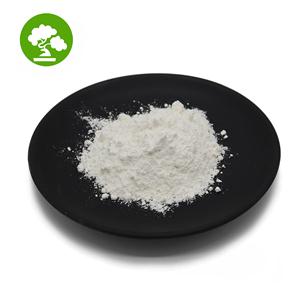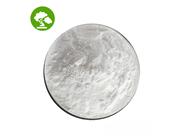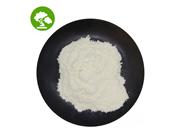Application:
1. Anti-tumor Many tumors are related to the anti-apoptosis of cells, so the treatment of tumors is mainly to induce apoptosis. Traditional cancer treatment mainly relies on drug chemotherapy, that is, drug induced apoptosis, but ceramide treatment of cancer is different from general drugs, it can directly act on apoptosis signal transduction pathway, thereby causing apoptosis. Therefore, ceramides open up a new therapeutic option for anti-tumor therapy. Ceramides are divided into endogenous ceramides and exogenous ceramides. In the process of tumor treatment, the concentration of intracellular ceramide can be increased by directly adding exogenous ceramide or promoting the synthesis of endogenous ceramide to induce cell apoptosis and achieve the purpose of tumor treatment. When cells are stimulated by various external conditions, endogenous ceramide synthesis begins, which promotes the increase of intracellular ceramide concentration and may induce a series of physiological and pathological reactions such as apoptosis. Therefore, ceramide is considered to be a lipid that can inhibit tumor cells. 2. Prevention and treatment of cardiovascular diseases Vascular endothelial cells are the first barrier of the cardiovascular system, and the integrity and endocrine function of vascular endothelial cells are related to the normal function of the cardiovascular system. When the body is in a state of disease, the expression of a large number of inflammatory factors in the body will increase sharply, and the overexpression of inflammatory factors will affect the integrity and endocrine function of endothelial cells, and even lead to apoptosis of endothelial cells in severe cases. Ceramide plays a significant role in inducing apoptosis of endothelial cells. It can be seen that ceramide plays a very important role in regulating the integrity and endocrine function of endothelial cells. Ceramide induces apoptosis of vascular endothelial cells through Fas pathway, which plays a very important role in studying the mechanism of ceramide induced apoptosis of vascular endothelial cells. 3. Anti-inflammatory TNF (tumor necrosis factor) is a positive regulator of inflammation, and TNF can directly activate neutrophils. In recent years, data have shown that increasing the amount of intracellular ceramide can increase the amount of TNF in the body, and then trigger apoptosis of various cells. The effect of ceramides on TNF, a positive regulator of inflammation, suggests that ceramides have anti-inflammatory effects.
The effect of ceramide on skin
1, moisturizing effect: ceramide is the main component of the skin stratum corneum lipid, can help repair the skin barrier can make the skin soft and shiny. But ceramide decreases with age, and skin without it becomes dull and dry.
2, barrier effect: sufficient ceramide in the skin can resist external stimulation, but without or without, the skin will lose its natural protective effect, and there is no defense ability for all external physical, biological and other injuries. For example, the skin is more prone to sunburn when exposed to the sun, and it is easy to turn red when the weather becomes cold.
3, anti-allergy effect: This is the Gospel for thin skin children's shoes, ceramide can help to thicken the stratum corneum, enhance the tolerance of the whole skin, protect against external harmful substances, avoid sensitivity, and repair the role of red blood.
4, in addition, ceramide has a very good anti-aging, auxiliary whitening and antioxidant effect.
Storage Condition | Keep in a cool and dry place |
Transportation | By Sea or by Air(DHL/UPS/TNT/FEDEX/EMS) |
Delivery Time | 7-28 days |
Payment | T/T, Western Union or Bitcoin |


 China
China

















